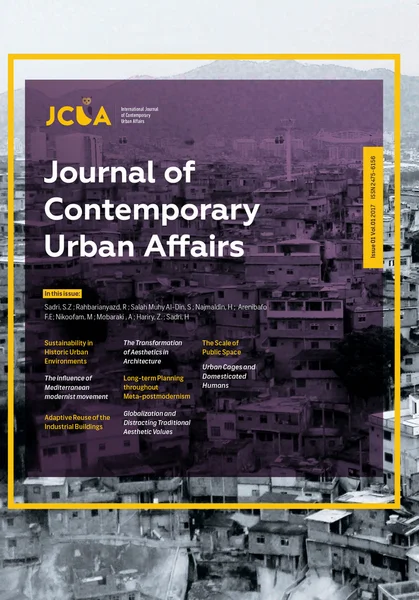-
density, energy and metabolism of a proposed smart city
جزئیات بیشتر مقاله- تاریخ ارائه: 1400/08/01
- تاریخ انتشار در تی پی بین: 1400/08/01
- تعداد بازدید: 483
- تعداد پرسش و پاسخ ها: 0
- شماره تماس ژورنال: 905061899966
this paper reports on a detailed analysis of the metabolism of the island city of mumbai should the indian government’s proposal for ‘smart’ cities be implemented. it focuses on the environmental impact of increased population density achieved by demolishing existing medium-rise (3-5 storey) housing and replacing it with the proposed high-rise (40-60 storey) towers. the resulting increase in density places a burden on the demand on such things as electricity and water and simultaneously increases the output flows of drainage, solid waste and greenhouse gas production. an extended urban metabolism analysis is carried out on a proposed development in mumbai (bhendi bazaar) that has been put forward as an exemplar case study by the government. the flows of energy, water and wastes are calculated based on precedents and from first principles. the results of the case study are then extrapolated across the city in order to identify the magnitude of increased demands and wastes should the ‘smart’ city proposals be fully realised. mumbai is the densest city in the world. it already suffers from repeated blackouts, water rationing and inadequate waste and sewage treatment. the results of the study indicate, on a per capita basis, increasing density will have a significant further detrimental effect on the environment.
حوزه های تحت پوشش ژورنال
مقالات جدیدترین رویدادها
-
استفاده از تحلیل اهمیت-عملکرد در ارائه الگوی مدیریت خلاقیت سازمانی و ارائه راهکار جهت بهبود
-
بررسی تاثیر ارزش وجوه نقد مازاد بر ساختار سرمایه شرکت های پذیرفته شده در بورس اوراق بهادار تهران
-
بررسی تأثیر سطح افشای ریسک بر قرارداد بدهی شرکت های پذیرفته شده در بورس اوراق بهادار تهران
-
بررسی تأثیر رتبه بندی اعتباری مبتنی بر مدل امتیاز بازار نوظهور بر نقد شوندگی سهام با تأکید بر خصوصی سازی شرکت ها
-
تأثیر آمیخته بازاریابی پوشاک ایرانی بر تصویر ذهنی مشتری پوشاک ایرانی (هاکوپیان)
-
تحلیل دینامیکی مسائل دو بعدی الاستیک به روش ایزوژئومتریک
-
بررسی تأثیر بازاریابی عصبی بر بهبود به یادسپاری پیام های تبلیغاتی
-
بررسی نقش سلامت و آرامش روانی بر یادگیری دانش آموزان
-
بررسی معماری بومی در بناهای مسکونی تبریز (نمونه موردی خانه بهنام)
-
پراکندگی فلزات سنگین آرسنیک و آنتیموان در خاک های اطراف معدن سرب و روی آهنگران – ملایر
مقالات جدیدترین ژورنال ها
-
مدیریت و بررسی افسردگی دانش آموزان دختر مقطع متوسطه دوم در دروان کرونا در شهرستان دزفول
-
مدیریت و بررسی خرد سیاسی در اندیشه ی فردوسی در ادب ایران
-
واکاوی و مدیریت توصیفی قلمدان(جاکلیدی)ضریح در موزه آستان قدس رضوی
-
بررسی تاثیر خلاقیت، دانش و انگیزه کارکنان بر پیشنهادات نوآورانه کارکنان ( مورد مطالعه: هتل های 3 و 4 ستاره استان کرمان)
-
بررسی تاثیر کیفیت سیستم های اطلاعاتی بر تصمیم گیری موفق در شرکتهای تولیدی استان اصفهان (مورد مطالعه: مدیران شرکتهای تولیدی استان اصفهان)
-
روش کشف تقلب در پایگاه داده گرافی
-
بررسی نقش رهبری در ایجاد فرهنگ تفکر استراتژیک در کارکنان شهرداری خمین
-
نقش کارآفرینی در مدیریت کسب وکار
-
تحلیل فقهی و حقوقی مصارف اموال عمومی
-
مطالعه شاخص های هنری پوشاک قوم کرمانج


سوال خود را در مورد این مقاله مطرح نمایید :